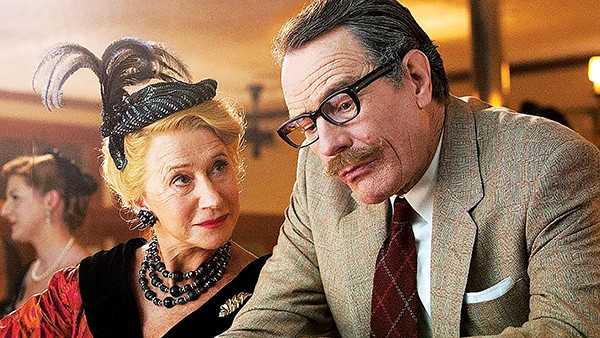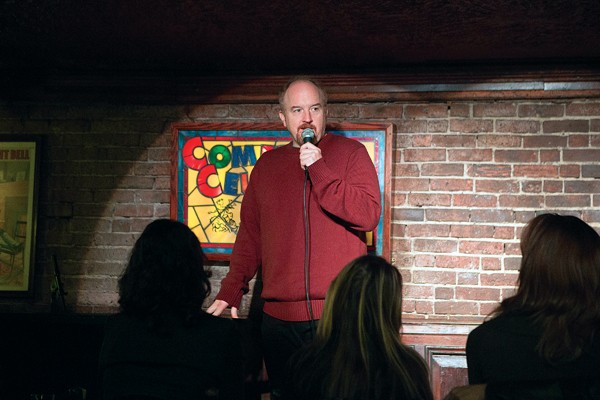That does it. Let it be known, with the Memphis Flyer’s readership as my witness, that the 64th annual Grammy Awards officially obliterated the last ounce of patience I had for any argument about so-called cancel culture.
No, I’m not upset that Cedric Burnside’s I Be Trying won Best Traditional Blues Album — last year, the Flyer listed it as one of our top 10 albums of the year, and I’m always pleased when this publication’s record of excellent taste is affirmed.
Rather, I’m totally unsurprised but equally disgusted that comedian and serial masturbator Louis C.K.’s album Sincerely Louis C.K. won the Grammy for Best Comedy Album. A headline from The Hollywood Reporter really sums it up: “Louis C.K. Wins Grammy for First Special Since Sexual Misconduct Allegations.” For those who don’t know or don’t remember, in 2017 five women accused C.K. of sexual misconduct, including masturbating in front of them. The comedian eventually admitted that “These Stories Are True.”
But I don’t want to get off track. It’s not so much that C.K. won a Grammy that upsets me, though I can’t say I’m wild about that development. Rather, it’s that a very vocal contingent of the population will undoubtedly continue to crow about cancel culture despite clear indications that it’s nonexistent.
“What about former Mandalorian actor Gina Carano?” some devil’s advocates might ask. To which I would promptly respond, “Oh, you mean the woman who claimed that being a Republican — a choice one makes — is akin to being a Jewish person forcibly relocated, tortured, or exterminated during the Holocaust? Yeah, pretty tone-deaf and egregious thing to say, right? She’s the star of the forthcoming Western film Terror on the Prairie.”
Oh, and she’ll be at Fan Expo in Dallas in June. She’s still getting work, still collecting checks, and I would be flabbergasted if she doesn’t publish a ghost-written book about the evils of liberalism soon. Carano vs. Cancel Culture: My Stand Against the Elites or something like that.
Look, cancel culture is not real. It’s made up, a bogeyman to drum up right-wing outrage and pearl-clutching fear in Fox News viewers. “You can’t say anything these days. You can’t even publicly denigrate another person for their culture. I ask you, what is the world coming to?”
But why invent a completely cuckoo culture war? It’s the easiest way to get people to vote against their own self-interests.
I’ve made a point to shy away from fuming about hypocrisy — the hypocrisy is the point, it seems. It’s an expression of power, of tribal solidarity. But something about this whole cancel culture debate has really ruffled my feathers. Consider how big a fuss is made, nationally and locally, about protecting children. From critical race theory, from CBD and Delta 8, from predators, from confusion about why little Sarah’s got two mommies. And yet Tennessee state Rep. Tom Leatherwood’s HB 233, which sets up a common-law marriage between “one man” and “one woman,” has no minimum age limit. The Sexual Assault Center of Middle Tennessee said this in a statement: “The Sexual Assault Center does not believe the age of consent should be any younger than it already is. It makes children more vulnerable to coercion and manipulation from predators, sexual and other.” Does that sound like a bill presented by people overly concerned with protecting children?
We have got to get beyond these cancel culture/culture war concerns. There are real, dangerous threats facing us. The Intergovernmental Panel on Climate Change just this week released a report that it’s “now or never” if we want to limit global warming. Limit. Not stop, but limit. We are wasting time, energy, and money on spurious arguments when we should be working to end climate change, to end the current pandemic and prepare for the next one, to combat the housing crisis, to focus on any number of other concerns that actually limit many people’s quality of life.
If you agree, I suggest that you do as I will, and shut down any cancel culture talk with one little phrase. I think it will be as useful as “State’s rights to do what?” — the question I use to nip discussions about the “true” cause of the Civil War in the bud.
The next time someone tries to warn me about cancel culture, I’m just going to say, “Louis C.K. won a Grammy for his first special since his sexual misconduct allegations.”





